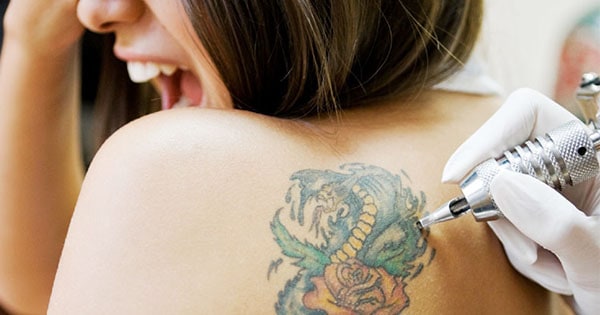Getting a tattoo can be both exciting and terrifying, especially if you’ve never had one before. Here’s a list of things you need to know to prepare you for your first body ink masterpiece:
1. Know what you want.

Take time to know what kind of tattoo you want—there’s no need to rush. Tattoo designs can go from insanely hyperrealistic to the simplest line art. Look over different varieties beforehand and check which one you want the most. Contrary to the norm, it doesn’t have to have some deep meaning, it can simply be something you like looking at.
If you’re still kind of iffy about your design, try getting a temporary henna tattoo first to test it out.
2. Yes, your tattoo is going to hurt.
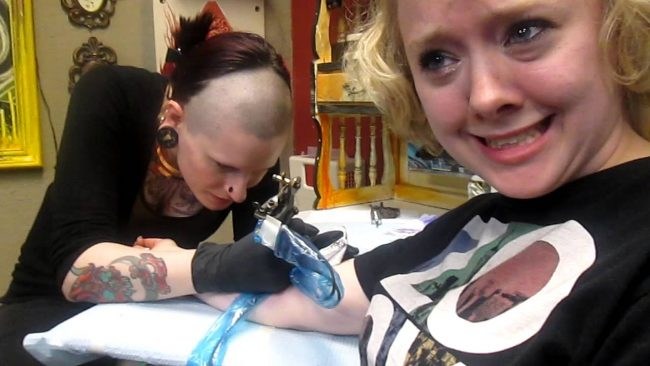
Getting inked hurts and there’s really no way around it. When you’re getting a tattoo, the needle pierces approximately 1/16″ of an inch of your skin. It needs to penetrate the dermis layer to make your tattoo permanent. So yes, it’s going to hurt and you are going to bleed.
A tattoo is especially painful for women when they’re about to get, or are on their period due to heightened skin sensitivity, so it’s best to work around those dates.
People pass out or cry all the time while getting inked. There’s no shame in it, but you can experience less pain if you choose an area of your skin that’s less sensitive.
3. Choose an area carefully.
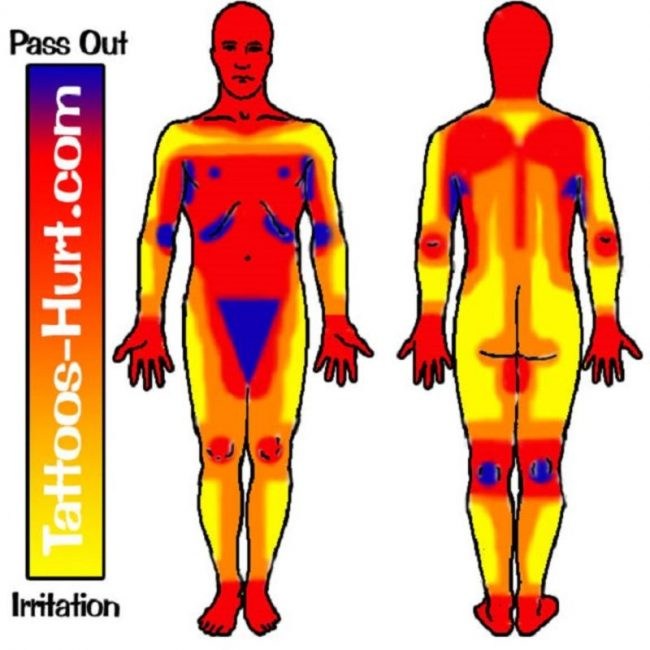
Everyone’s threshold for pain is different. For first timers though, it’s best to avoid the ribs, elbows, the back of your knees, and your groin since those parts are most sensitive to pain.
Those parts are considered to be the most painful since those are areas that either have less fleshy tissue or fat shielding the bone, or have a lot of sensitive nerve endings branching out around the skin. As a general rule of thumb, tattoos hurt more in areas where a person is most ticklish.
4. You CAN be allergic to tattoos.

Yes, it’s highly possible to be allergic to tattoos. Majority of the dyes used specifically for tattooing are made from heavy metals like mercury. Introducing these tattoo pigments to your skin can cause irritation and allergic reactions. You can get a dermatologist to run some tests on you beforehand to avoid going to the ER.
5. Sorry, alcohol won’t make it hurt less.
A lot of people are under the impression that getting hammered makes you too numb to feel the pain from getting a tattoo. Newsflash: it doesn’t!
Your drunk movements will only prolong the whole process. Not only that, alcohol is a blood thinner and will make you bleed more. Your tattoo artist might accidentally erase the sketch from having to constantly wipe away your blood. Alcohol also hinders your body’s natural ability to seal a wound and prevent infections.
Other substances that have similar effects to alcohol are coffee, energy drinks, Tylenol, and Advil.
6. Splurge!

A tattoo is absolutely worth investing on. It will stay with you for the rest of your life and unless you have several friends who can attest to that questionable cheap tattoo studio you’re considering, you should always splurge.
7. Choose your artist carefully.

Choose a reputable artist or tattoo studio at least a week before. Look over their portfolios and peoples’ reviews, either online or offline, before deciding. Make sure you’re contented with the work they’ve posted and that you’re comfortable enough around them to not be shy when asking for touch-ups.
8. Investigate your potential tattoo parlors.
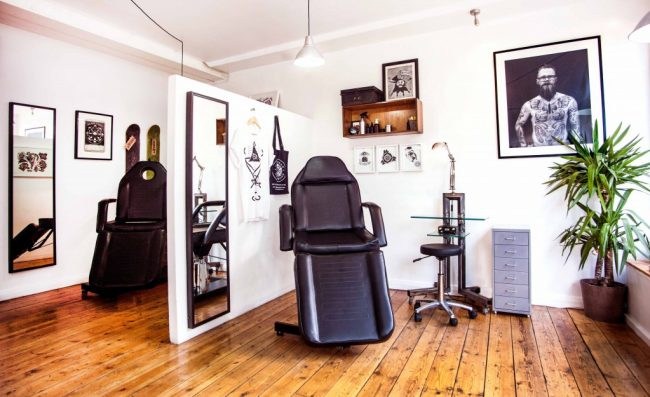
Is the tattoo parlor clean? How long have they been in the business? Do they have an autoclave, an equipment sterilizer? Are their needles and other sharp objects opened in front of their clients and used only once? Do the artists wear latex gloves while doing a tattoo? Can any of them give you detailed accounts about aftercare? If they can’t answer these questions right, walk away!
9. Prepare for the big day.
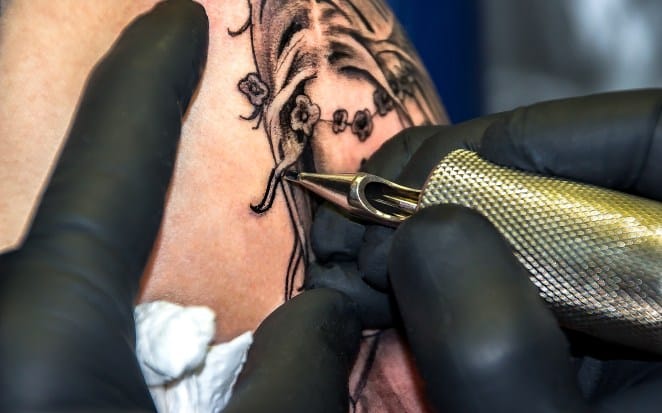
Get a good night’s sleep. Eat a full meal. Drink lots of water. Stay away from any sort of alcohol, energy drink, coffee, Advil or Tylenol. Shave the area you want your tattoo to be on gently and without cutting it (or don’t, sometimes the artists can do that for you!) Don’t stay out in the sun for too long and risk getting a sunburn and don’t get a tan, a fake tan, or a chemical peel. Exfoliate and moisturize to keep your tattoo from coming off lackluster.
Don’t strain your muscles with any strenuous exercise at least two days before. They cause swelling and soreness and will have an impact on healing time.
Dress comfortably. Bring water and snacks to eat for the session if your tattoo is going to take a while. Make sure the equipment is clean and there are new needles on the table laid out for you.
10. If you need to, bring a friend for support.
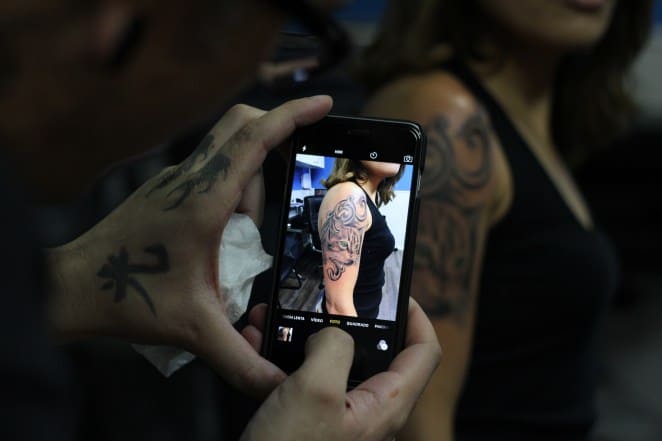
Most tattoo shops generally advise you to come by yourself for sanitary purposes, but if you’re really scared, you can have at least one person around. Having too many might get in the way of the tattoo artist and cause unnecessary distractions or damage equipment.
11. Have care cream ready.
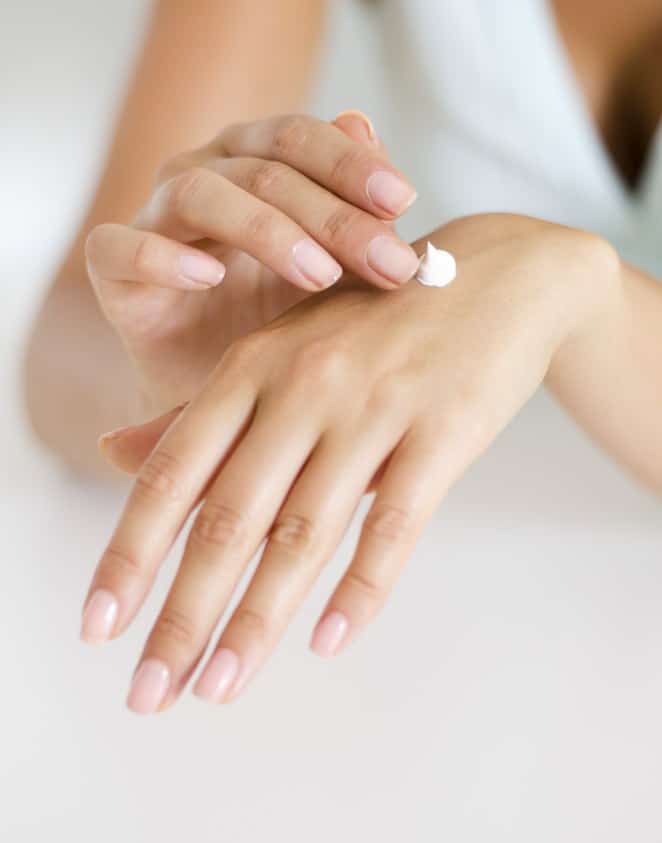
Buy a tube of care cream like Bepanthen or Aquaphor at your local pharmacy just in case your tattoo artist doesn’t have or won’t supply any. These creams are excellent at keeping your fresh tattoo from spurting blood everywhere. They’re also great if you have sensitive and sore skin. Use this at least twice a day for several weeks after your session.
12. Make aftercare your best friend.

Ready all the necessary antibacterial soaps, creams, and lotions ahead so you can start caring for your tattoo right away. Tattoos take about two to three weeks in general to heal but can go for more depending on the area and your preparations. Make sure you are gentle around the area as you clean and moisturize it. Don’t forget to air it out!
13. Scabs aren’t scary!

Scabs will form over your tattoo to protect your skin so do not pick or scratch at them even if they get too itchy. That area of skin is basically an open wound with only the scabs protecting it. Wait until the scabs flake off before any form of sun exposure or water submersion.
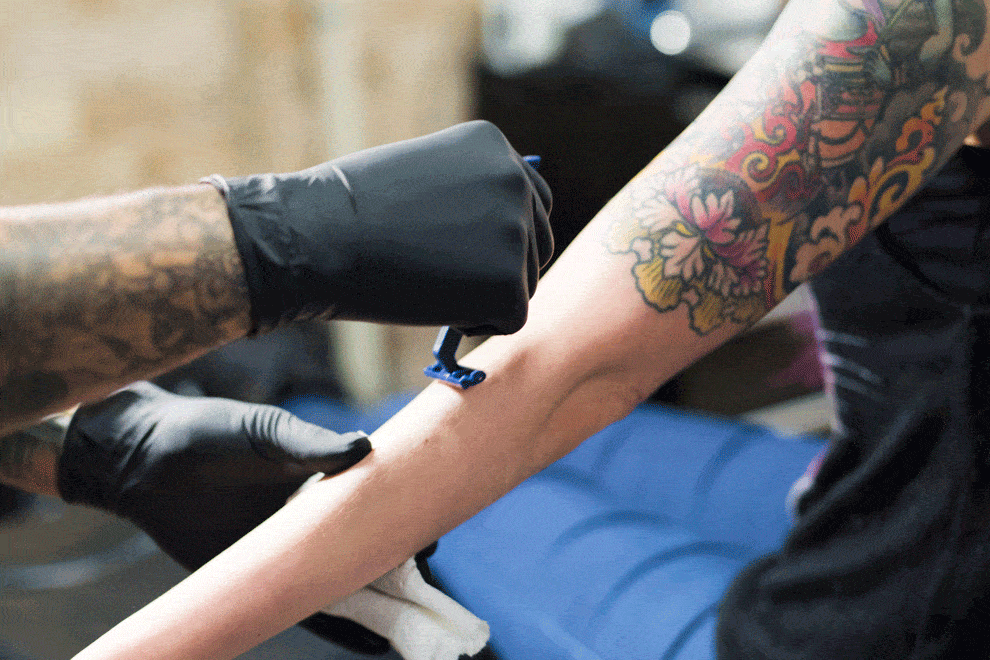
It’s always a different experience with each tattoo so don’t worry if your first time wasn’t what you expected. Give yourself a chance to learn the process, how your skin takes ink, and how your body heals.

